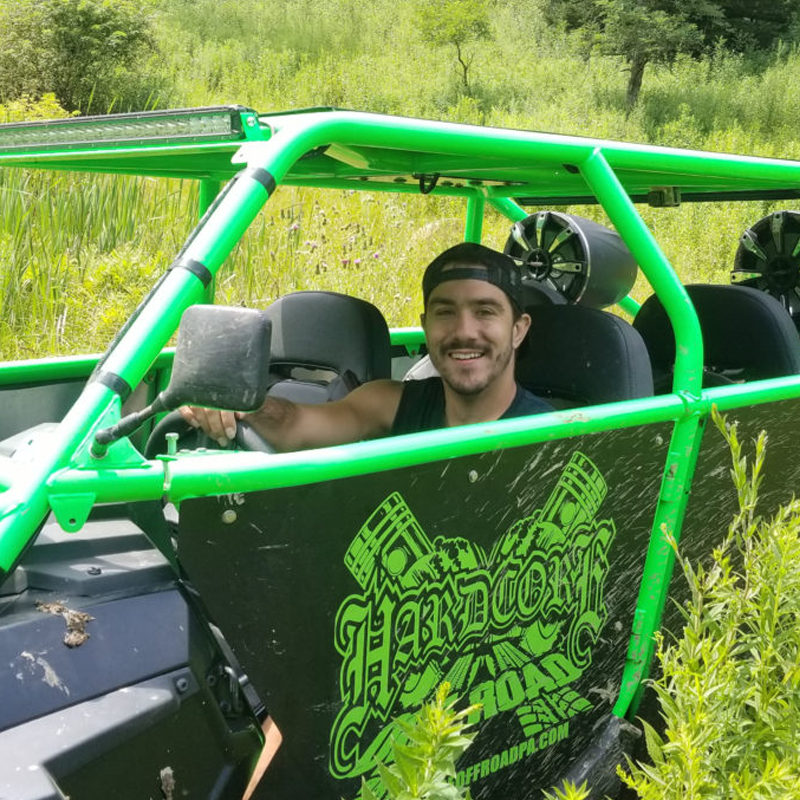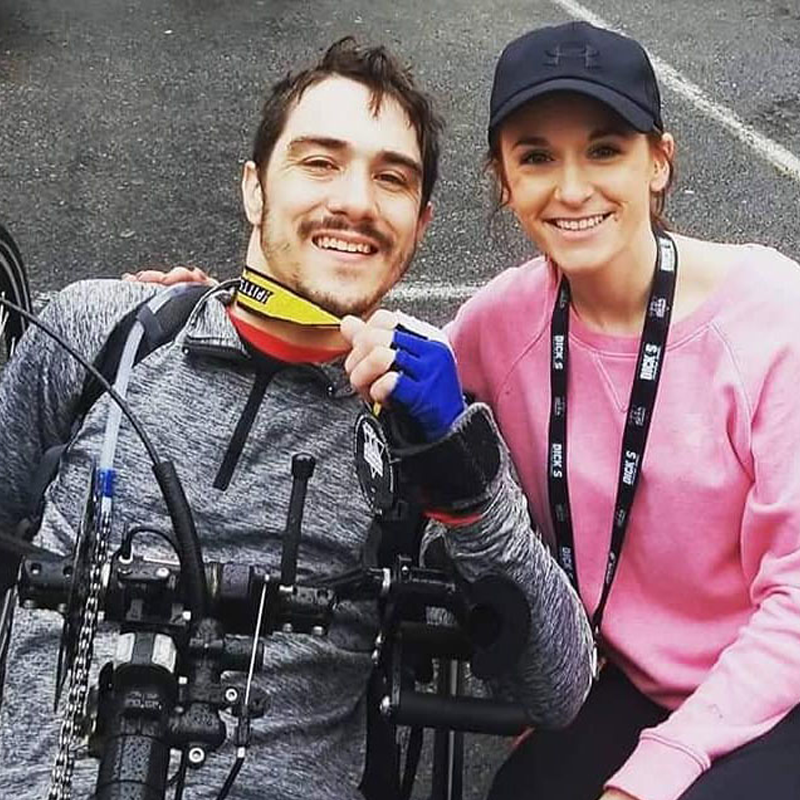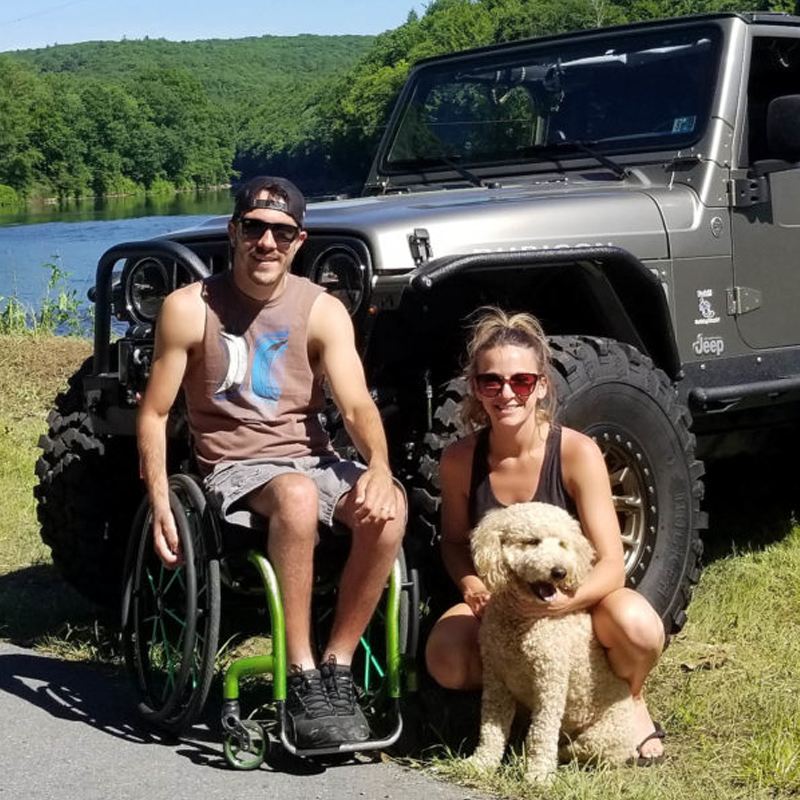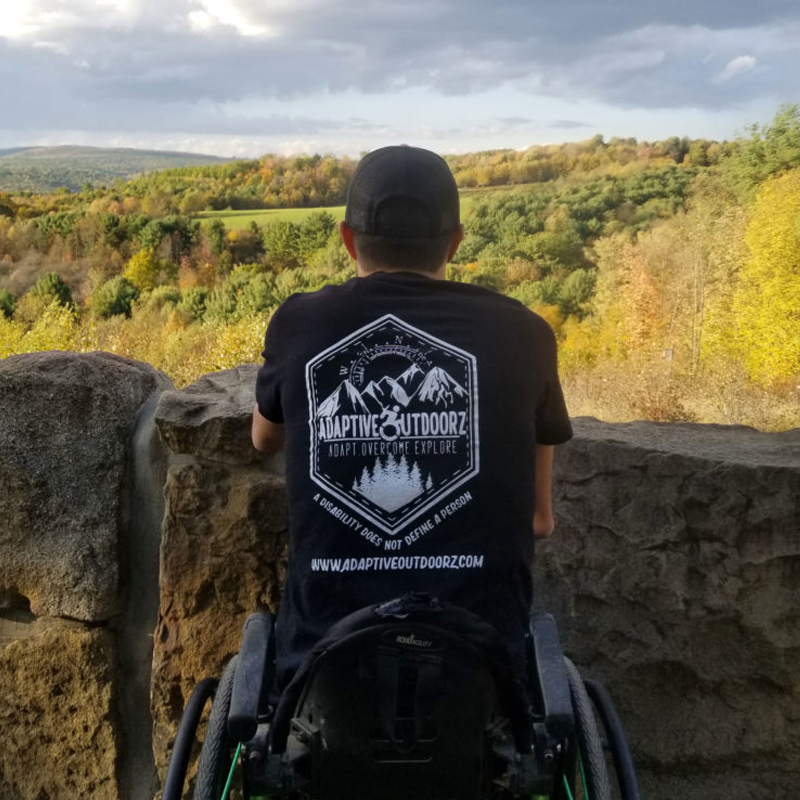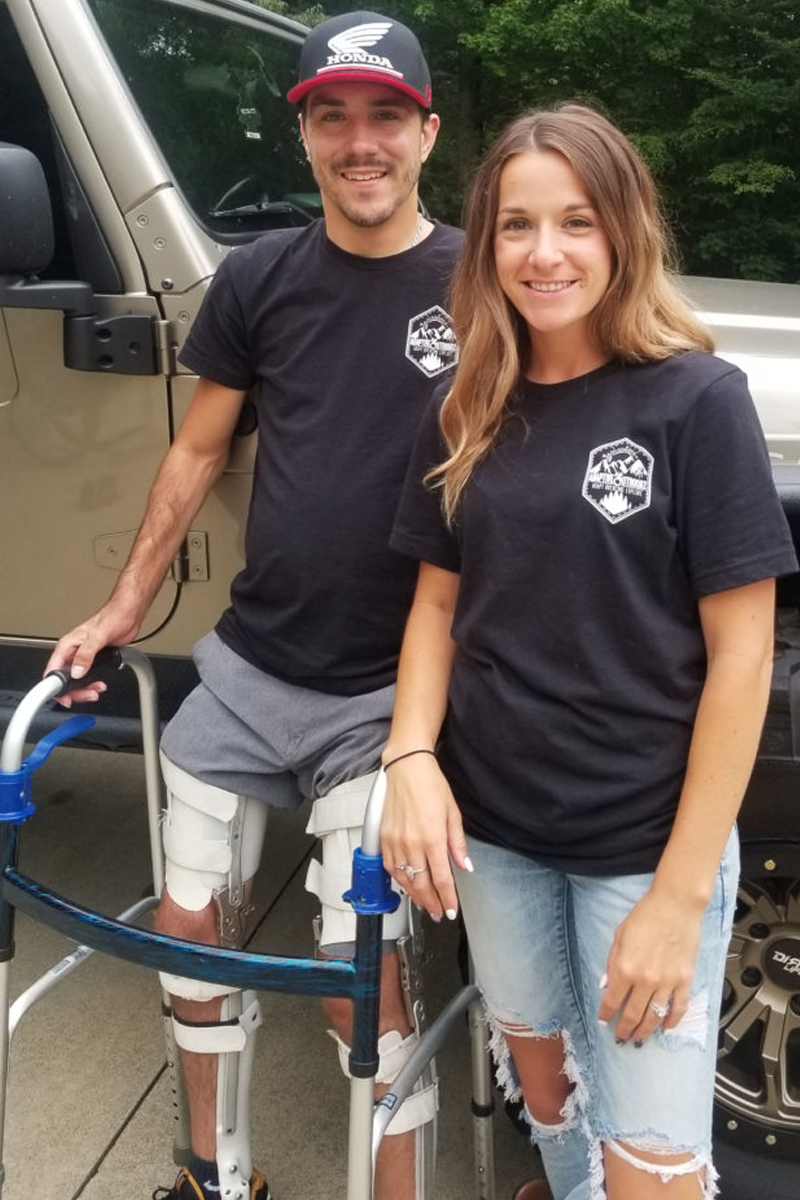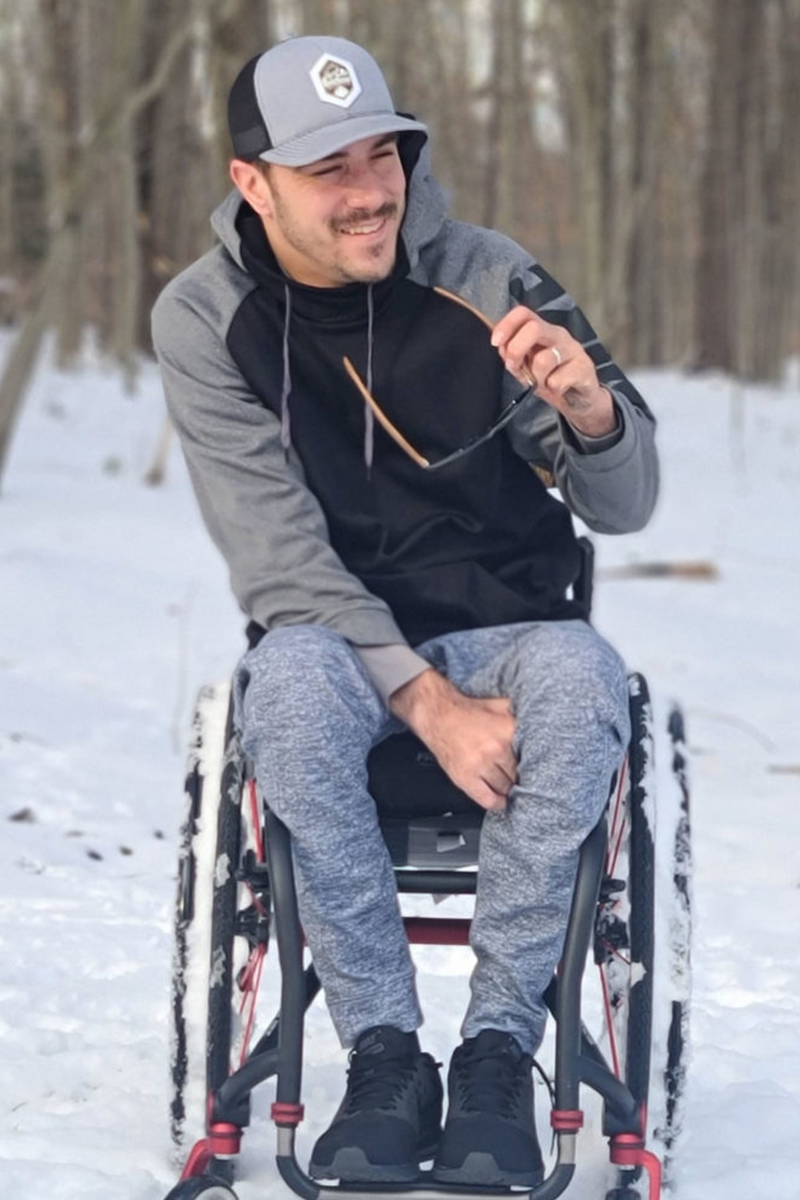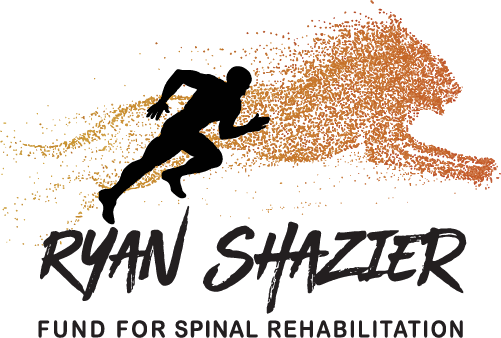How a Spinal Cord Injury Fostered a Business for Disabled Outdoors People
In 2011, Zac Wolfe was a 19-year old, outdoors-loving teen that was eating life. “I lived life on the edge back then,” laughs Zac, from a Zoom call in his home near Erie, PA. “I was a gearhead, and very much a motorhead—into dirt bikes, mountain biking, and hunting and fishing,” he offers. Zac had just finished his first year of college when he took a ride with friends in a single cab pick-up truck.“And then all of the sudden, we had a car accident. The truck rolled,” Zac says. “I was sitting in the middle of the seat—my friends were fine, but all I remember is one of them leaning over me as I was face down in the road saying, “Stay with me, Zac!”
A Hard Transition
That was July 3, 2011. After surgery to stabilize his C5-C6 spinal cord injury, which was, at first classified as “complete,” Zac transferred to a rehab facility close to home. “I didn’t know what a spinal cord injury was, or what I could or couldn’t do, so I thought I’d bounce right back,” laughs Zac, some 10 years post injury. Because Zac and his family did not have a lot of information about spinal cord injuries, transitioning to therapy was hard, especially for a young man used to doing everything for himself. “I can’t even put into words what it was like, but I can say that your life changes in an instant,” says Zac. “I will say you do learn a lot about yourself in a very short period of time.”
Common Bonds
Zac says his first few days in inpatient rehab were devastating, but that his spirits and attitude were buoyed by the other patients around him. He cannot hide his smile when he talks about the bond he shared with them. “Yeah,” he muses, “They were all there for spinal cord injuries too, and they cheered me up—and on, and made the experience that much better.” Zac got to work immediately, and while respecting the medical community, did not accept the parameters they gave him. “I was told I’d be leaving rehab in a power wheelchair, and I thought to myself, ‘No way,’” says Zac. He worked his way up from pushing a manual wheelchair 10 feet to wheeling himself out the door at the end of his two-month stay.
No Days Off
In the 10 years since the accident, Zac has found ways to do “pretty much everything I did before the accident happened,” he says with a smile. First, he credits his attitude of not ignoring his workouts or rehab sessions. “There are days—and have been days—when I don’t want to get out of bed, when I don’t want to do the resistance bands or aqua therapy or go to rehab,” he says. “But I have an incredible support system, and people have encouraged me—my mom, my friends—and then I realize its up to me.”
Get Outside
Zac decided that college wasn’t for him, so he found his niche as a quality inspector in a powder coating manufacturing facility. But his real passion is the outdoors and sharing that with others. So, he started his own business, Adaptive Outdoorz, adaptiveoutdoorz.com a lifestyle company dedicated to providing products and support to the active disabled community.
It’s a Mindset
There is no doubt that the physical ramifications of Zac’s spinal cord injury have been life changing. “Yeah, at 19 I learned real fast how life really can change in the blink of an eye,” he says. Despite the hand he’s been dealt, Zac pushed back, did not accept the initial prognosis, and leads a full like. Through a “no days off” attitude and some medical intervention, he has progressed to an incomplete status. He enjoys an independent like with his wife and son, and thrives by helping others through Adaptive Outdoors. One of his proudest moments was getting back in a modified Jeep that he and his grandfather built shortly before his accident. “I didn’t know how I was going to do that, but I wanted it bad enough, so I found a way.”
Shalieve
Wisdom
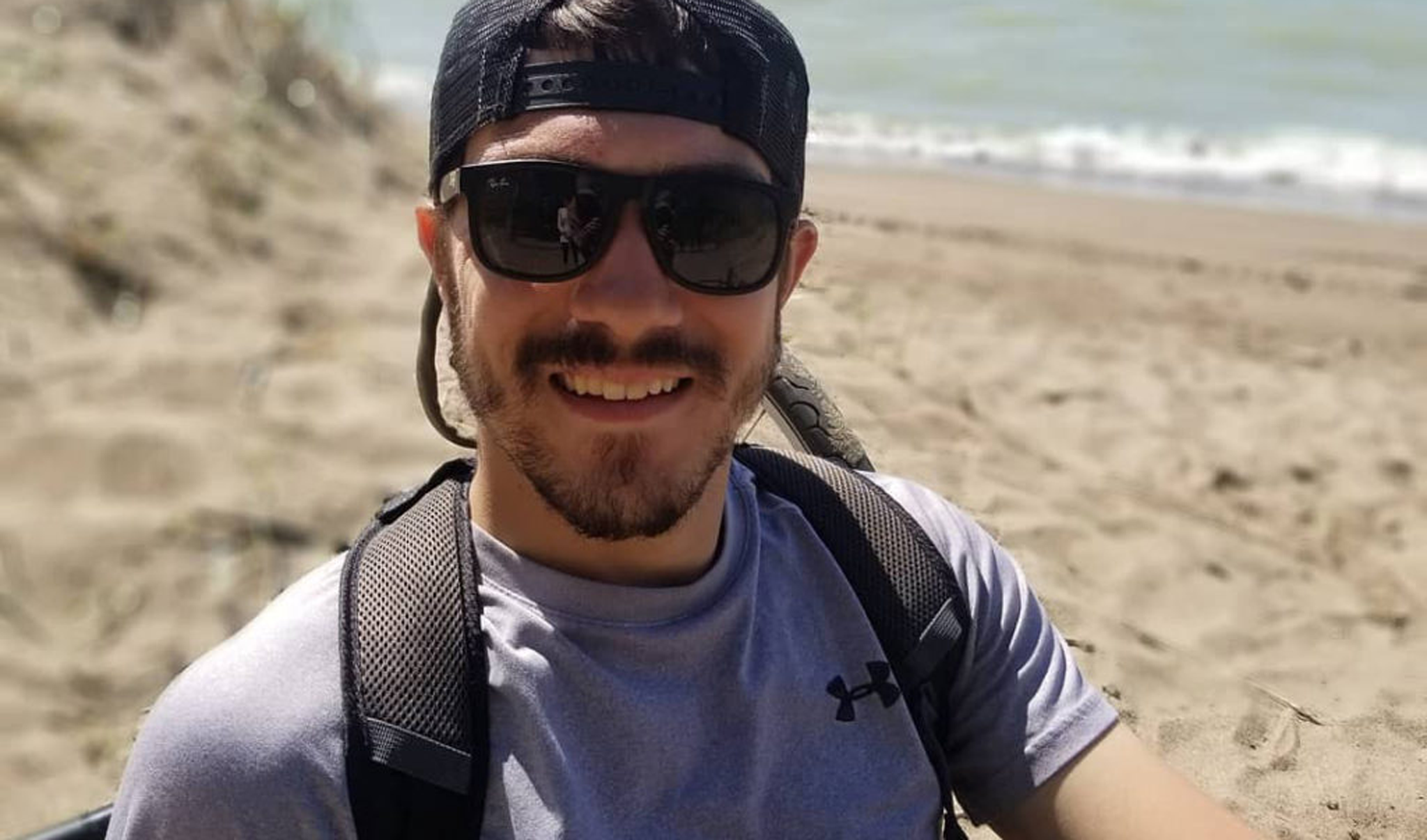
Visualize where you want to be. “When I want to try something, go somewhere, or accomplish something new, I imagine myself doing it—the steps it will take and the end result. This builds confidence before I even try.”
Ask for help when you need it. “This one was hard. I am independent, and at first was resistant to asking for help. But you have to realize your limitations and ask when you need help. Also, do not let others help you too much, or sit back and ask for too much help.”
Work to figure out alternative ways to accomplish your goals. “It took me two hours to figure out how to put on socks! But once I got it, what a feeling of accomplishment!”
Talk about how you feel, don’t hold things in. “Don’t bottle up your feelings. This can be a depressing, life-changing injury. Find someone, a friend, a therapist, that can ease that burden.”

